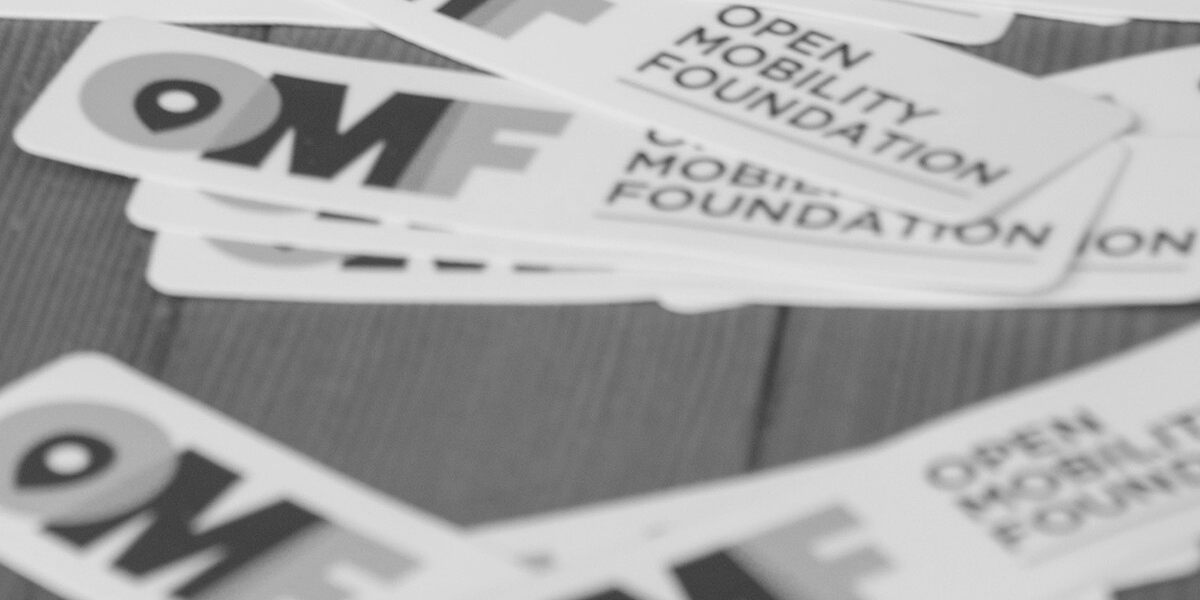4 Ways to Get Involved with the Open Mobility Foundation
The Open Mobility Foundation (OMF) is all about collaboration. Whether you’re new to mobility or an expert in the field, there’s a way for you to join the conversation and make an impact. Here’s how:
1. Follow Along
Keep up with the latest OMF updates by following us on LinkedIn and subscribing to our monthly newsletter. You’ll get access to helpful resources, event announcements, and ways to participate in our work.
💡 Pro Tip: Perfect for anyone who is just getting started or wants to stay informed
2. Join a Working Group
Want to help shape the future of transportation? Join one of OMF’s working groups, where cities and experts collaborate to build the tools that improve urban mobility.
MDS Working Group
The Mobility Data Specification (MDS) helps cities manage shared transportation like e-scooters, bikes, taxis, and delivery robots.
To participate:
- Review the MDS Working Group wiki to familiarize yourself with the group’s work
- Get announcements and review meeting agendas from the MDS mailing list
- Join monthly meetings (Thursdays, 12pm ET) to discuss issues and hear from other contributors
- Follow progress and chime in on our MDS repository
Curb Working Group
The Curb Data Specification (CDS) helps cities create smarter curb spaces for loading zones, bike lanes, outdoor dining, and more.
To participate:
- Review the Curb Management Working Group wiki and read the full scope of work
- Get announcements and review meeting agendas from the Curb Management mailing list
- Join monthly meetings (Tuesdays, 12pm ET) to discuss issues and hear from other contributors
- Follow progress and chime in on our CDS repository
💡 Why Join? These groups are where innovation happens. You’ll collaborate with industry leaders and contribute to the development of impactful tools.
3. Connect & Learn
OMF hosts events to bring people together and share knowledge. From webinars to workshops and social gatherings, you’ll find opportunities to learn about new tools, meet others in the community, and explore the future of urban mobility.
💡 Get Involved: Check our website or follow us on LinkedIn for event updates—and don’t miss the annual OMF Summit!
4. Become a Member
Membership gives you a direct role in shaping OMF’s tools and initiatives. Members participate in steering committees, councils, working groups, and other members-only forums designed to help cities solve real-world transportation challenges.
The organization is led by our municipal members via the Board of Directors, but all members (including public and private sector members) may participate at the committee and project level. Here are some of the ways OMF members participate in the governance of our organization:
Working Group Steering Committees
Each working group is led by a steering committee of representatives from public and private sector OMF members. These groups shape our work in the day-to-day by facilitating discussions, driving consensus, and evaluating release candidates to send to OMF’s Technology Council and Board of Directors.
Committees & Councils
The OMF has several committees and councils that focus on issues related to the OMF’s mission and operations. In these groups, voting members lead the development of projects, facilitate discussion and peer learning, and help make recommendations and decisions about the OMF’s work.
💡 Why Membership Matters: As a member, you’ll have a voice in creating solutions that make a difference for cities and communities.
Take the Next Step
At the Open Mobility Foundation, participation is key to advancing urban mobility solutions. Whether you follow us, join a working group, or become a member, there’s a way for everyone to contribute.
Got questions? Contact us or join an upcoming meeting—we’d love to have you on board!




